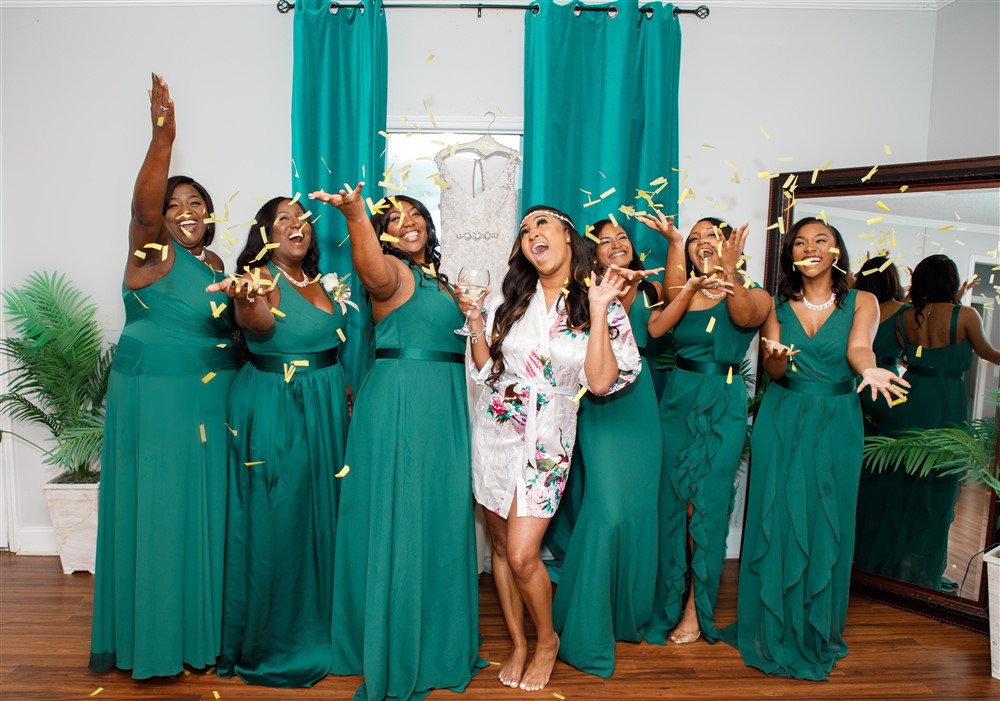Photography: Tara Harp Photography; Wedding Planner, Design & Decor: Unique Rose Events & Designs; Day of Coordinator: Soirees By Lee; Venue: Cha’le Gardens
Getting married these days is very costly. For brides, before you buy from suppliers of your choice or hire the most costly services of makeup artists, wedding planners, coordinators, etc, talk to your husband-to-be first and discuss your budget.
Before you go bridezilla by demanding this and that for your wedding, determine who pays for your wedding and will cover the largest percentage of your wedding budget.
In today’s post we discuss the wedding etiquette of who pays for what and who traditionally should pay for your wedding. This will serve as a guide for couples who would like to know the basic etiquette in who pays for what.
Photographer: Michelle Scott Photography
Traditional Wedding Etiquette - Who Pays For the Wedding?
Wedding Etiquette on who pays for the weddings has evolved for the last century. Traditionally, wedding etiquette books dictate that the bride's father should pay for the wedding. This tradition dates back to a time where young ladies were kept in the house, not allowed to work and go to school, were taught lessons on how to be a lady, social etiquette, and wedding etiquette in preparation for their lives as married women.
A daughter was 'given' by her father to a boy or a man who his father thought could feed and take care of his daughter when he was gone. Since he would be giving his daughter away, he would host his daughter's wedding and pay for everything as a sign of his agreement to his daughter's marriage. This practice was what set the traditional wedding etiquette standard for who pays for the wedding.
Modern Wedding Etiquette - Who Pays For the Wedding
In this day and age, who pays for the wedding is not as rigid as it was before. Should the bride and the groom can go traditional, they should ask the father of the bride to host the wedding and pay for the entire wedding expenses. Or if the parents of the groom have expressed their desire to be a co-host of the wedding event, they may do so, especially if the parents of the groom are wealthy and are able to cover some of the expenses.
With most couples both earning their own money, it is not a violation of wedding etiquette if the bride and the groom decide to pay for their own wedding. Some couples prefer to pay for the their own wedding so that they can have more control over the number of guests, the people in attendance, and how the celebration of the wedding should be held.
Alternative Ways of Paying - Wedding Etiquette
Some parents who may want to contribute to the wedding cost. The bride and groom should be sensitive to this matter. Do not say no to your parents, even if you think they will give you the last penny that they own. It is a joy for your parents to see their child get married and their pleasure to play a big part of your wedding (that is by shelling out money for the wedding cost).
You should sit down with your parents and discuss with them the projected costs of your wedding and ask them which part of the wedding expenses would they comfortably want to fund. This will allow your parents to have an idea of the exact amount that they will need to provide and give you two an estimate of how much you will need to raise.
Photography: Tara Harp Photography; Wedding Planner, Design & Decor: Unique Rose Events & Designs; Day of Coordinator: Soirees By Lee; Venue: Cha’le Gardens
Whether you follow the traditional wedding etiquette or you decided to go untraditional remember this day is to celebrate you and your groom becoming one. Don’t let anyone take away from your celebration.
If you need help planning your wedding, let us help you! Click here to schedule your consultation with us!
Great Grace XOXO




